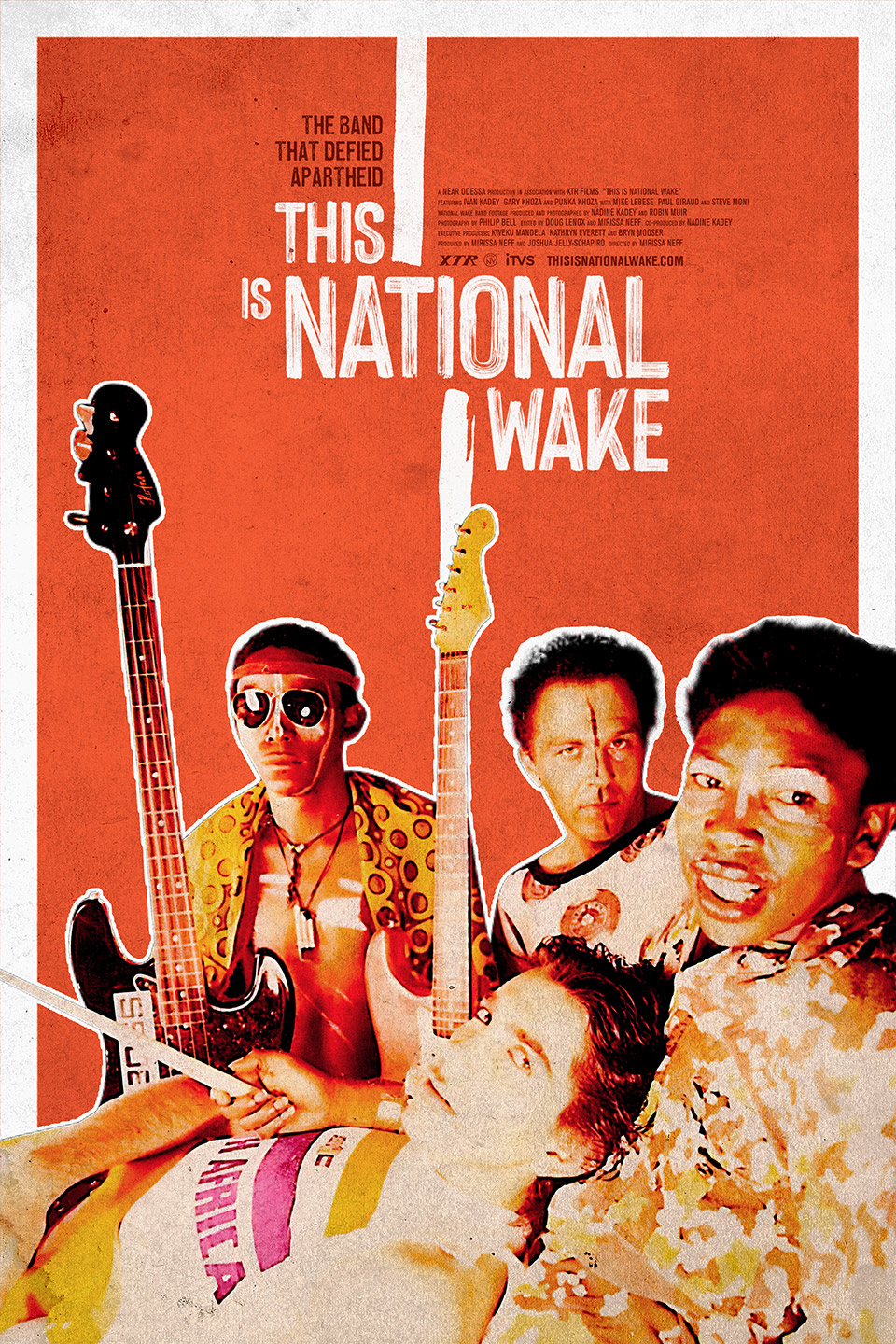
Really interesting documentary about South Africa’s first multiracial punk band under apartheid, National Wake.
In the late 70s, brought together by a shared love of music and as a fuck-you to apartheid, a bunch of students started living in a house together. By the very fact that some were Black and some were white, this was an illegal act. Out of the nightly jam sessions and friendships formed came National Wake. Made up of brothers Gary and Punka Khoza from Soweto, and Ivan Kadey, a white Jewish architecture student, with Mike Lebesi, Paul Giraud, and Steve Moni rotating in and out, the music they played was punk infused with African rhythms and identity, and with explicitly anti-apartheid, anti-colonial and anti-racist lyrics.
From the first they faced push-back from the police. The band was illegal, them playing together was illegal, them living together was illegal. They were stopped and fucked with at every available opportunity. If the Black members of the band didn’t have the right papers to be in white areas for gigs, the police stopped and lifted them. When they put out their first record, the copies were seized and selling it was forbidden. The police drew them all in for questioning at one point and advised them how much more money they could make as a band in exile, what it would do for their image and sales, in what was the smoothest death threat ever.
For the guys themselves, being an integrated band, playing to integrated crowds, it felt like an act of hope. When they played gigs out in the streets, seeing people come together, regardless of race, to dance together, it felt like a defiant message of equality. The colour line in South Africa was so rigid, many people knew almost no one outside their race, except for in formal work settings. To mingle socially, to make connections with others on a personal level, while dancing at a National Wake gig, it was a rare opportunity. Ivan speaks of the sense of healing they got from playing, of his experience as a white musician, going to play a gig in Sharpeville, the site of a police massacre, and playing for the crowd and watching people dance together. It was a beautiful thing.
But what happens is what always happens. As the years go on, as the pressure mounts from the police, as they grow from being students to being young men with families, the wear and tear of the harassment, the persistent racism, and how those things are impacting differently on the band members, takes its toll. Ivan talks about how the white members of the band would always go out walking with the Black members when they went anywhere, because of the fear that the police would just lift Gary, Punka or Mike, and do god knows what with them. Using their whiteness as a shield introduces a dynamic within the band that Ivan admits he didn’t fully appreciate at the time. It seemed like no more than an act of solidarity, and natural you would go with your friends if the situation was dodgy, but never really considering what that experience must have been like from the other side. Equally, Ivan reflects on turning up in white bars for gigs, and the owner immediately assuming he was the leader of the band and addressing all his comments to him. As a young man, this laid back guy, the whole reason he was in a multiracial punk band was because he just took people as he found them, but when he did the same when accepting these racist microaggressions, it laid down resentments that festered. Racism was so big in their world, it was racism with a capital R, with separate benches and bathrooms, with police firing on peaceful protestors, with activists disappearing or showing up dead. It didn’t occur to young white men under a system like that to peer into the nuances of their interactions and behaviours. Those tiny gestures seemed a very long way off from the problem. But in fact it was this drip-drip-drip from within as much as it was the clashes from without, that wore away at their bonds and the band eventually broke up.
One thing to say about this film is Ivan is pretty much the only original band member interviewed. Gary and Punka have both passed now, so what they could say about these events from their perspective is lost. It’s something to bear in mind, especially as Ivan freely admits there were things he didn’t see and didn’t understand until years later.
Really interesting piece of South African history, a small pocket of defiance and hope existing long before its goal became a reality.